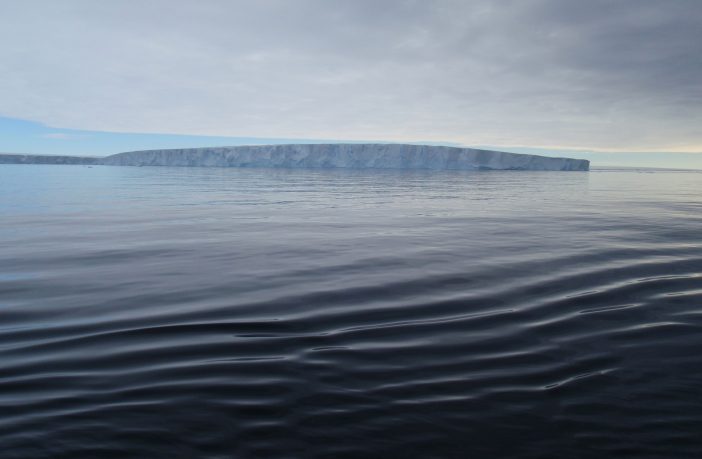A new international study by scientists from the UK and France has concluded that, whilst melting ice in Antarctica will contribute to sea-level rise over the next century, the consequences may not be as serious as first thought.
Published in the respected academic journal, Nature, the study predicts the consequences of the retreat of the ice mass, which recent research suggests has begun in West Antarctica, and involved the development of an ice-sheet computer model by academics from three universities – The Open University, University of Bristol, and Université Grenoble Alpes).
Led by Catherine Ritz from the Université Grenoble Alpes and Tamsin Edwards from The Open University Faculty of Science, the study concluded that:
- the most likely impact of Antarctic ice melt over the next century will be about 10cm sea-level rise;
- previous research, which concluded that sea levels could rise more than 30cm, is extremely unlikely – there is only a one in twenty chance of this happening;
- the impact of global ice melt will be far lower than previous estimates, which were as much as 100cm from Antarctica alone.
Whilst the prospect isn’t as bleak as previously thought, over longer time scales (for example by 2200), ice melting could cause sea levels to rise by more than 72cm.
Lecturer in Environmental Sciences at the OU, Dr Tamsin Edwards, said:
Our method is more comprehensive than previous estimates, because it has more exploration of uncertainty than previous model predictions and more physics than those based on extrapolation or expert judgement.
The study: ‘Potential sea-level rise from Antarctic ice sheet instability constrained by observations’ is authored by Catherine Ritz (Centre national de la recherche scientifique and Université Grenoble Alpes, France), Tamsin L. Edwards (The Open University, University of Bristol), Gaël Durand (Centre national de la recherche scientifique and Université Grenoble Alpes, France), Antony J. Payne (University of Bristol), Vincent Peyaud (Centre national de la recherche scientifique and Université Grenoble Alpes, France) and Richard C.A. Hindmarsh (British Antarctic Survey).



